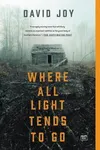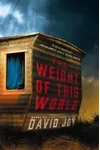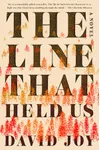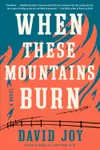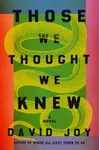Picture a rugged North Carolina storyteller spinning tales of grit, heartbreak, and redemption under the shadow of the Appalachian mountains—meet David Joy! Born in 1983, this critically acclaimed novelist has carved a niche in contemporary American literature with his raw, unflinching portrayals of rural life. His taut prose and authentic voice have earned him accolades like the Edgar Award nomination, making him a standout in the world of Appalachian noir.
Joy’s stories aren’t just fiction—they’re a window into the soul of a region often misunderstood, blending beauty and violence with a poet’s touch. From meth-riddled hollows to the quiet ripple of a fishing stream, his work captures the human condition with a fierce tenderness that keeps readers hooked.
The Making of David Joy
Born in Charlotte, North Carolina, on December 11, 1983, David Joy grew up immersed in the landscapes that would later define his work. He moved to Cullowhee as a young child, where the Appalachian mountains became his muse. A self-described outdoorsman, Joy spent more time fishing and hunting than in libraries, yet his passion for storytelling bloomed early. He earned both bachelor’s and master’s degrees in literature from Western Carolina University, mentored by luminaries like Ron Rash. Before writing full-time, Joy worked as a teaching assistant and even managed The Cashiers Historical Society, but his compulsion to write never wavered.
His breakthrough came with a feverish burst of creativity, penning his debut novel in just six weeks. That raw energy, paired with years of honing his craft, set the stage for a career that’s as much about place as it is about people.
David Joy’s Unforgettable Stories
Joy’s novels are masterworks of Appalachian noir, blending gritty realism with lyrical prose. His debut, Where All Light Tends to Go (2015), follows Jacob McNeely, a young man trapped in his father’s meth empire, earning an Edgar Award nomination for Best First Novel. Critics hailed it as “a savagely moving novel” that echoes the greats of Southern literature. The 2023 film adaptation, Devil’s Peak, starring Billy Bob Thornton, brought Joy’s vision to the screen.
Subsequent works like The Weight of This World (2017), a brutal tale of loyalty and trauma, and The Line That Held Us (2018), a Southern noir about a hunting accident gone wrong, cemented his reputation. When These Mountains Burn (2020) tackles addiction with unflinching compassion, while Those We Thought We Knew (2023) explores race and community, earning the Willie Morris Award. Joy’s memoir, Growing Gills: A Fly Fisherman’s Journey (2011), reveals his deep connection to nature, a finalist for the Reed Environmental Writing Award.
His style—often compared to Cormac McCarthy or Flannery O’Connor—marries stark violence with moments of tenderness. Joy’s characters, flawed and working-class, navigate universal struggles like addiction, race, and redemption, all rooted in the vivid details of Jackson County’s creeks and backroads.
Why David Joy Matters
David Joy’s work transcends regional storytelling, offering a compassionate lens on Appalachia’s complexities. His novels challenge stereotypes, portraying the region’s people as neither saints nor caricatures but as deeply human. Awards like the Southern Book Prize and France’s Prix Saint-Maur En Poche reflect his global resonance, particularly in cultures that value rugged individualism. Joy’s mentorship of writers like Annette Clapsaddle and his essays in outlets like The New York Times Magazine amplify his influence, sparking conversations about class, identity, and place.
By giving voice to the overlooked, Joy has become a cultural bridge, inviting readers to see Appalachia’s beauty and pain anew. His stories linger, urging us to confront hard truths with empathy.
- Birth Date: December 11, 1983
- Key Works: Where All Light Tends to Go, Those We Thought We Knew, Growing Gills
- Awards: Edgar Award nominee, Willie Morris Award, Southern Book Prize
Snag Where All Light Tends to Go and dive into David Joy’s gritty, soul-stirring Appalachian noir—you won’t look back!
